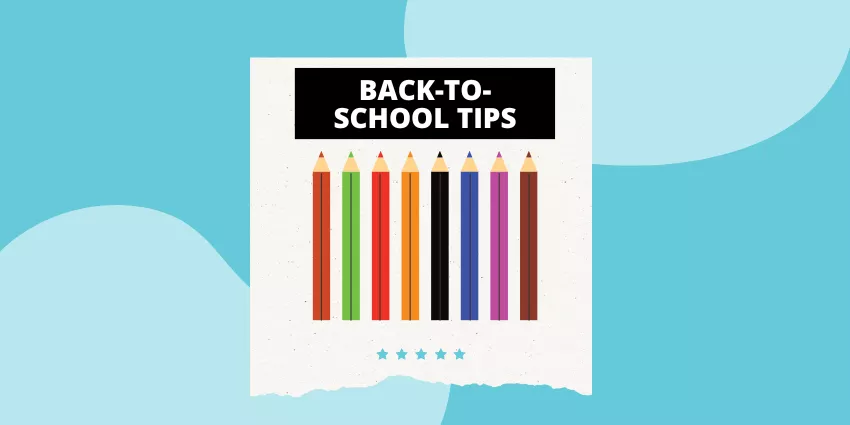Back-to-school is just around the corner and our Family Engagement Consultant Angela put together the following list of tips designed to help parents of children with special needs work together with schools and create a positive educational experience.
It takes a lot of preparation to create a seamless transition. To assist our kids with special needs with a positive educational experience, it is important that parents try to anticipate issues before they occur. Although it is the school’s responsibility to make sure our children have what they need to succeed, in the end, it is the parents who understand our children and advocate for them most effectively.
- Be sure agreed-upon accommodations are in place: Before heading back to school, check in with your child’s educational team to ensure important accommodations and supports (which may already be written in your child’s IEP) are ready to go.
- Connect personally with your child’s teacher and therapists: This is especially important if the school staff don’t know who you are! If possible, set up a time to go to the school to meet and communicate with your child’s team. Provide them with a little bit of information about your child’s strengths and challenges without overwhelming the staff as they busily prepare for the start of a new school year. Let them know you are available to communicate with them and you are eager to be included in your child’s educational experience. Hand out your contact information and ask about the best way to communicate with them.
- Establish an easy, reliable communication checklist: Create a quick checklist in a binder that goes back and forth every day with “yes/no” or “short answer” questions that the teacher or aide can answer while your child gets ready to go home. This will help you know how your child is doing and address any issues before they become a big problem. Eg. Sally ate her lunch yes/no; Sally earned stickers for good behaviour in ________; Sally had trouble with_________.
- Provide tools to help teachers and staff to help your child: Provide helpful tips/tools to the teacher and the team about how best to help your child focus, stay calm, manage difficult transitions, etc. Eg. A teacher from last year may have designed a great visual schedule to help your child prepare for transitions. Send this to the new teacher.
- Get and preview transportation information ahead of time: It’s helpful to connect with the person who will be driving your child so you can share any important information about your child’s needs and challenges. Find out “pick-up” and “drop-off” times and locations, the route and how long the drive will be. Before school starts, it may be helpful to drive the route with your child and talk through the process.
- Collect information about extracurricular options and special events: Email or call a contact person and ask if your child can be accommodated and included in a particular program. This may be a great place for your child to explore their strengths, meet friends and start to enjoy the school experience.
- Prep your child’s new clothes, shoes and other items: Clothes and shoes can create sensory issues and emotional attachments to old items can be hard to break. As early as possible, involve your child in sorting through old items and buying new clothes and backpacks for the upcoming school year. Help your child break in new clothing/shoes well before school starts.
- Create a “new school year” calendar and schedule for your child: Schedules help to lower anxiety and prepare for transitions.
- Help your child preview the new year: If possible, walk through your child’s day with them so they know what’s going to happen, which helps them better handle their anxiety. You may be able to review the class list with the teacher to identify friends of your chlld as well as children who have caused issues for your child in the past.
- Preview your child’s academic program: Be sure you are informed of the curriculum/syllabus so you can support your child as needed. If you foresee any challenges, check in with the team to find out how they will accommodate your child’s needs to fix potential problems before they arise.
- Address potential challenges ahead of time: Some challenges you might want to tackle during the summer are lockers and locks (easy to manipulate locks or unlocked cubbies), gym clothes (Velcro runners rather than tie-up runners), and computer-based assignments if your child is old enough for this challenge (you may need to familiarize yourself with passwords, getting online and saving assignments to assist your child with this).
Source: www.verywellfamily.com

